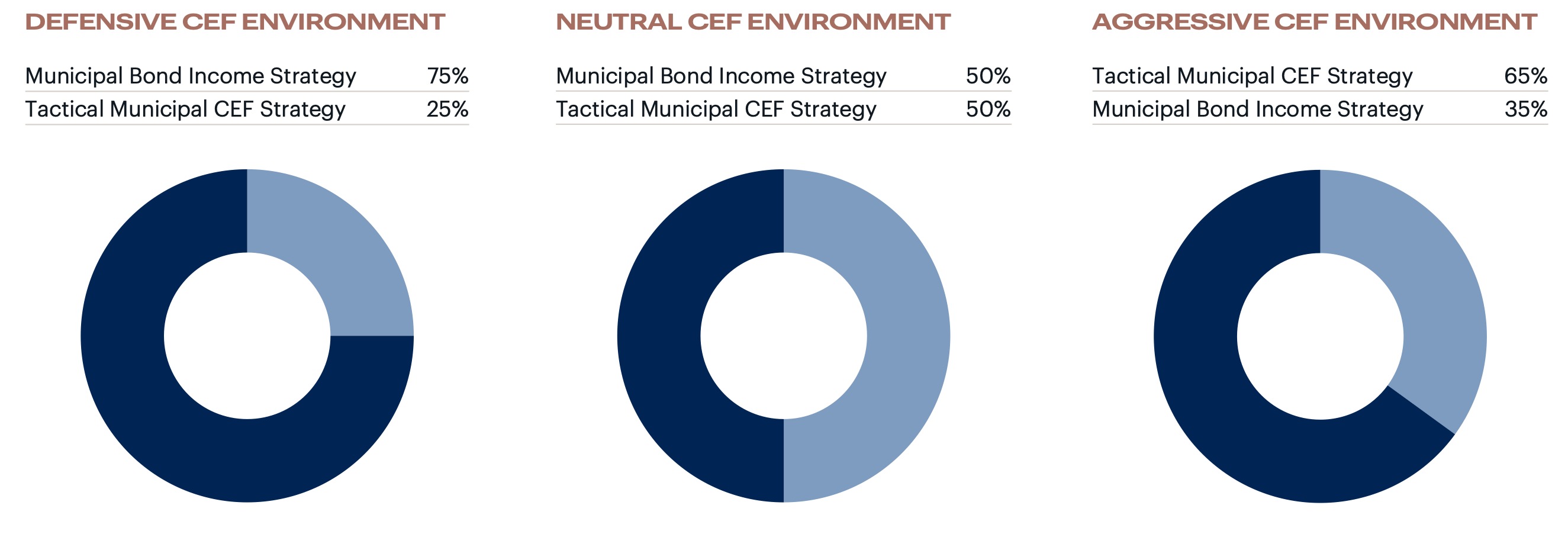RiverNorth Managed Duration Municipal Income Fund II, Inc.
Disclosures & Definitions
Although the income from the Fund’s municipal bond investments is generally exempt from federal income tax, you may owe taxes on any capital gains realized through the Fund’s trading or through your own redemption of shares. For some investors, a portion of the Fund’s income may be subject to state and local taxes, as well as to the federal alternative minimum tax.
Please consult your personal tax advisor regarding the tax implications of owning this Fund.
Risk is inherent in all investing. Investing in any investment company security involves risk, including the risk that you may receive little or no return on your investment or even that you may lose part or all of your investment. Therefore, before investing in the Common Shares, you should consider the risks as well as the other information in the prospectus.
More detailed information regarding these risks can be found in the Fund’s prospectus.
Fund Risks: Credit Risk – a borrower may be unable to make interest or principal payments when they are due. Funds that invest in Municipal Bonds rely on the ability of the issuer to service its debt. This subjects the Fund to credit risk in that the municipal issuer may be fiscally unstable or exposed to large liabilities that could impair its ability to honor its obligations. Municipal issuers with significant debt service requirements, in the near-to mid-term, unrated issuers and those with less capital and liquidity to absorb additional expenses may be most at risk. To the extent the Fund invests in lower quality or high yield Municipal Bonds, it may be more sensitive to the adverse credit events in the municipal market. The treatment of municipalities in bankruptcy is more uncertain, and potentially more adverse to debt holders, than for corporate issues. Interest Rate Risk – the value of Municipal Bonds, similar to other fixed income securities, will likely drop as interest rates rise in the general market. Conversely, when rates decline, bond prices generally rise.
Past performance is no guarantee of future results. Diversification does not ensure a profit or guarantee against loss.
An investment in the Fund is not appropriate for all investors and is not intended to be a complete investment program. The Fund is designed as a long-term investment and not as a trading vehicle.
Investors should consider the Fund’s investment objective, risks, charges and expenses carefully before investing. The prospectus should be read carefully before investing. For more information, please read the prospectus, call your financial professional or call 844.569.4750.
The fund is a closed-end fund and closed-end funds do not continuously issue shares for sale as open-end mutual funds do. Since the initial public offering, the Fund now trades in the secondary market. Investors wishing to buy or sell shares need to place orders through an intermediary or broker. The share price of a closed-end fund is based on the market’s value.
CFA® is a trademark owned by the CFA Institute.
- May be includable in taxable income for purposes of the Federal alternative minimum tax.
- The price at which a closed-end fund trades often varies from its NAV. Some funds have market prices below their net asset values – referred to as a discount. Conversely, some funds have market prices above their net asset values – referred to as a premium.
- MacKay Municipal Managers™ is a trademark used by a portfolio management team within MacKay Shields LLC (“MacKay Shields”).
- Investments may include securities that have a rating that is below investment grade, including “high yield” securities, which are bonds that have adequate capacity to meet financial commitments, but are more subject to adverse economic conditions or changing circumstances, as defined by Nationally Recognized Statistical Rating Organizations (“NRSRO”), such as Fitch. All bonds are subject to interest rate risk. If rates increase, the value generally declines.
- See prospectus for concentration limits with respect to the Fund’s direct investments in municipal bonds, although such exposure could be greater after factoring in the investments of the Underlying Funds in which the Fund may invest. The Fund, and the Underlying Funds in which the Fund invests, may invest in securities of any credit quality, including securities that are rated below investment grade that receive the lowest ratings from nationally recognized statistical rating organizations.
- Leverage is a speculative technique that exposes a closed-end fund to greater risk and increased costs than if it were not used. The use of leverage may cause greater volatility in the level of a closed-end fund’s NAV, market price and distributions on its common shares. Leverage will also result in higher fees to the closed-end fund manager because the amount of assets under management will be included in the Fund’s managed assets. There can be no assurance that a closed-end fund will use leverage or that its leveraging strategy will be successful during any period in which it is employed.
- The Fund will terminate on or before February 16, 2037 (the “Termination Date”); provided, that if the Board of Directors (“Board”) believes that, under then-current market conditions, it is in the best interests of the Fund to do so, the Fund may extend the Termination Date: (i) once for up to one year (i.e., up to February 16, 2038), and (ii) once for up to an additional six months (i.e., up to August 16, 2038), in each case upon the affirmative vote of a majority of the Board and without common stockholder approval. In addition, as of a date within twelve months preceding the Termination Date, the Board may cause the Fund to conduct a tender offer to all common stockholders to purchase Common Shares of the Fund at a price equal to the net asset value per Common Share on the expiration date of the tender offer (an “Eligible Tender Offer”). The Board has established that, following an Eligible Tender Offer, the Fund must have at least $100 million of net assets to ensure the continued viability of the Fund (the “Termination Threshold”). In an Eligible Tender Offer, the Fund will offer to purchase all Common Shares held by each common stockholder; provided, that if the number of properly tendered Common Shares would result in the Fund’s net assets totaling less than the Termination Threshold, the Eligible Tender Offer will be terminated and no Common Shares will be repurchased pursuant to the Eligible Tender Offer. Instead, the Fund will begin (or continue) liquidating its portfolio and proceed to terminate on or before the Termination Date. Following the completion of an Eligible Tender Offer, the Board may eliminate the Termination Date upon the affirmative vote of a majority of the Board and without a Common Shareholder approval. In making a decision to eliminate the Termination Date to provide for the Fund’s perpetual existence, the Board will take such actions with respect to the continued operations of the Fund as it deems to be in the best interests of the Fund, based on market conditions at such time, the extent of Common Shareholder participation in the Eligible Tender Offer and all other factors deemed relevant by the Board in consultation with RiverNorth.
- The Bloomberg US Municipal Index is considered representative of the broad market for investment grade, tax-exempt bonds with a maturity of at least one year. The index cannot be invested in directly and does not reflect fees and expenses.
- Estimated Duration: Duration is a measure of the sensitivity of the price of a fixed income investment to a change in interest rates. Duration is expressed as a number of years. Duration is estimated by the adviser based on certain assumptions from third-party data and is subject to change. The difference between Unhedged and Hedged duration is that hedged duration includes the effect of a short US Treasury Futures position used to manage interest rate risk.












